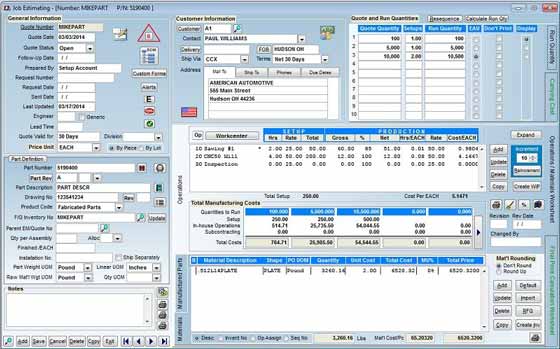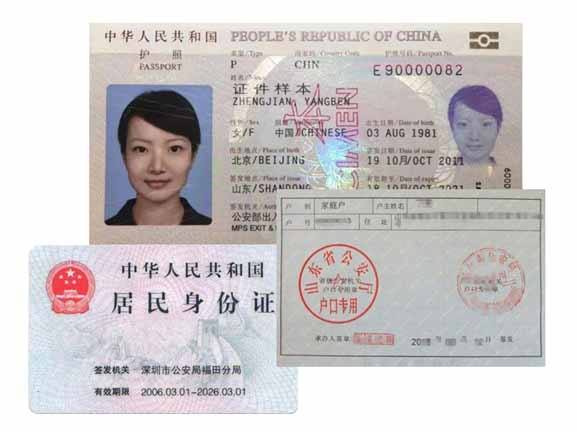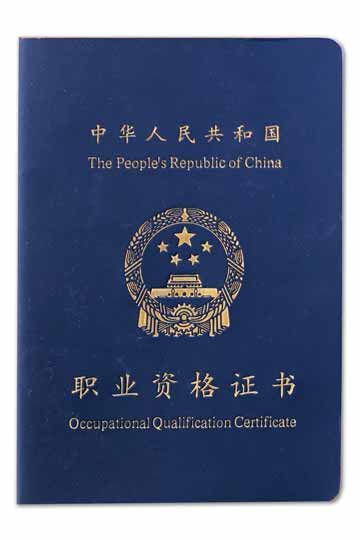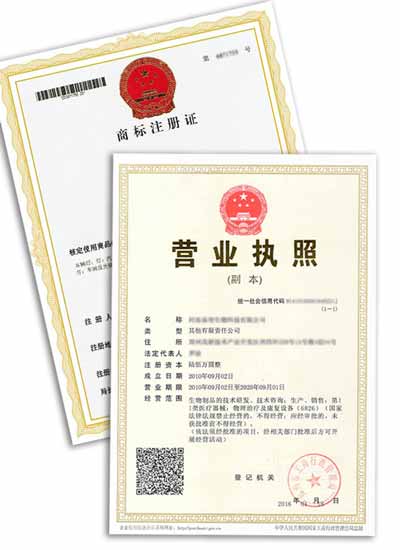翻译案例
翻译语种
联系我们
邮箱:liwei@bowwin.com
手机:+86-18565641179
电话:+86-755-8304 2538
地址:深圳市福田区彩田路彩虹新都彩霞阁23A
英文
英文
译
中文
FIFTY TIPS FOR WRITING THE 21ST CENTURY CONTRACT T
二十一世纪写好合同的五十招
译者:胡清平
Welcome to the 21st Century. Where practicing law requires us to don the garb of computers and the Internet. And where litigation is as costly as ever. Lawyer bills running $10,000 a month are not unusual in a hotly contested breach of contract lawsuit. With every word, phrase and sentence carrying the potential for winning or losing, the stakes are high. Simple logic, therefore, directs us to cautious and thoughtful drafting.
Drafting contracts is actually one of the simple pleasures of practicing law. Just 3 years ago at this Convention I presented 50 tips for contract writing. This article updates those tips in the context of our new tools and abilities. Following these tips could result in your writing a contract so clear no one will want to litigate it, saving your client from the trials and tribulations of litigation, truly a good reason to write the contract that stays out of court.
These tips apply to writing all kinds of agreements: office leases, real estate contracts, sales agreements, employment contracts, equipment leases, prenuptial agreements. They even apply to stipulations and settlements in litigation, where you want an agreement so clear that it avoids future litigation. Wherever clarity and simplicity are important, these tips will guide you there. The Appendix provides a few sample forms to illustrate these tips.
Before You Write the First Word
1. Ask your client to list the deal points. This can be in the form of a list, outline or narration. Doing this will help the client focus on the terms of the agreement.
2. Engage your client in "what if" scenarios. A good contract will anticipate many possible factual situations and express the parties' understanding in case those facts arise. Talking to your client about this will generate many issues you may not otherwise consider.
3. Ask your client for a similar contract. Frequently, clients have had similar transactions in the past or they have access to contracts for similar transactions.
4. Search your office computer or the Internet for a similar form. Many times you can find a similar form on your computer. It may be one you prepared for another client or one you negotiated with another lawyer. Just remember to find and replace the old client's name. Starting with an existing form saves time and avoids the errors of typing.
5. Obtain forms in books or CD-ROM. Typical forms of contracts can be found in form books, such as West's Legal Forms (a nationwide set) and Florida Jur Forms, as well as in treatises and Florida Bar CLE publications. These can be used as the starting point for drafting the contract or as checklists of typical provisions and wording to include in the contract. Many treatises and form books now come with forms on disk or CD-ROM.
6. Don't let your client sign a letter of intent without this wording. Sometimes clients are anxious to sign something to show good faith before the contract is prepared. A properly worded letter of intent is useful at such times. Just be sure that the letter of intent clearly states that it is not a contract, but that it is merely an outline of possible terms for discussion purposes. See Appendix C.
Writing that First Word
7. Start with a simple, generic contract form. The form in Appendix A is such a form. It provides a solid starting point for the structure of the contract. Like a house, a contract must have a good, solid foundation.
8. State the correct legal names of the parties in the first paragraph. As obvious as this is, it is one of the most common problems in contracts. For individuals, include full first and last name, and middle initials if available, and other identifying information, if appropriate, such as Jr., M.D., etc. For corporations, check with the Secretary of State where incorporated.
9. Identify the parties by nicknames. Giving each party a nickname in the first paragraph will make the contract easier to read. For example, James W. Martin would be nicknamed "Martin."
10. Be careful when using legal terms for nicknames. Do not use "Contractor" as a nickname unless that party is legally a contractor. Do not use "Agent" unless you intend for that party to be an agent, and if you do, then you better specify the scope of authority and other agency issues to avoid future disagreements.
11. Include a blank for the date in the first paragraph. Putting the date in the first paragraph makes it easy to find after the contract is signed. It also makes it easy to describe the contract in other documents in a precise way, such as the "December 20, 2000, Contract for Sale of Real Estate."
12. Include to provide background. Recitals are the "whereas" clauses that precede the body of a contract. They provide a simple way to bring the contract's reader (party, judge or jury) up to speed on what the contract is about, who the parties are, why they are signing a contract, etc. The first paragraph in the body of the contract can incorporate the recitals by reference and state that they are true and correct. This will avoid a later argument as to whether or not the recitals are a legally binding part of the contract.
13. Outline the contract by writing out and underlining paragraph headings in their logical order. The paragraphs should flow in logical, organized fashion. It is not necessary to write them all at once; you can write them as you think of them. Try to group related concepts in the same paragraphs or in adjacent paragraphs. For example, write an employment contract's initial paragraph headings like this:
Recitals.
Employment.
Duties.
Term.
Compensation.
14. Complete each paragraph by writing the contract terms that apply to that paragraph. This is simple. You learned this in elementary school. Just explain in words what the parties agree to do or not do paragraph by paragraph.
15. Keep a pad at hand to remember clauses to add. It is normal to think of additional clauses, wording and issues while writing a contract. Jot these down on a pad as you write; they are easily forgotten. Also keep your client's outline and other forms in front of you as you write, and check off items as you write them.
16. Repeat yourself only when repetition is necessary to improve clarity. Ambiguity is created by saying the same thing more than once; it is almost impossible to say it twice without creating ambiguity. Only if the concept is a difficult one should you write it in more than one way. In addition, if you use an example to clarify a difficult concept or formula, be sure that all possible meanings are considered and that the example is accurate and consistent with the concept as worded.
What to Watch Out for When Writing
17. Title it "Contract." Do not leave this one to chance. If your client wants a contract, call it a contract. A judge now sitting on the federal bench once ruled that a document entitled "Proposal" was not a contract even though signed by both parties. The lesson learned is, "Say what you mean." If you intend the document to be a legally binding contract, use the word "Contract" in the title.
18. Write in short sentences. Short sentences are easier to understand than long ones.
19. Write in active tense, rather than passive. Active tense sentences are shorter and use words more efficiently, and their meaning is more apparent. Example of active: "Sellers shall sell the Property to Buyer." Example of passive: "The Property shall be sold to Buyer by Seller."
20. Don't use the word "biweekly." It has two meanings: twice a week and every other week. The same applies to "bimonthly." Instead, write "every other week" or "twice a week."
21. Don't say things like "active termites and organisms". Avoid ambiguity by writing either "active termites and active organisms" or "organisms and active termites." When adding a modifier like "active" before a compound of nouns like "termites and organisms", be sure to clarify whether you intend the modifier to apply to both nouns or just the first one. If you intend it to apply to both, use parallel construction and write the modifier in front of each noun. If you intend it to apply to just one noun, place that one noun at the end of the list and the modifier directly in front of it.
22. Don't say "Lessor" and "Lessee." These are bad nicknames for a lease because they are easily reversed or mistyped. Use "Landlord" and "Tenant" instead. The same applies to lienor and lienee, mortgagor and mortgagee, grantor and grantee, licensor and licensee, party A and party B. This is where you can use your creativity to come up with a different nickname for a party, as long as you use it consistently throughout the contract.
23. Watch out when using "herein." Does "wherever used herein" mean anywhere in the contract or anywhere in the paragraph? Clarify this ambiguity if it matters.
24. Write numbers as both words and numerals: ten (10). This will reduce the chance for errors.
25. When you write "including" consider adding "but not limited to." Unless you intend the list to be all-inclusive, you had better clarify your intent that it is merely an example.
26. Don't rely on the rules of grammar. The rules of grammar that you learned in school are not universal. The judge or jury interpreting the meaning of your contract may have learned different rules. Write the contract so that no matter what rules they learned, the contract is clear and unambiguous. Follow this test for clear writing: Remove all periods and commas, then read it. Choosing the right words and placing them in the right place makes the writing clear without punctuation.
27. Don't be creative with words. Contract writing is not creative writing and is not meant to provoke reflective thoughts or controversies about nuances of meaning. Contract writing is clear, direct and precise. Therefore, use common words and common meanings. Write for the common man and the common woman.
28. Be consistent in using words. If you refer to the subject matter of a sales contract as "goods" use that term throughout the contract; do not alternately call them "goods" and "items." Maintaining consistency is more important than avoiding repetition. Don't worry about putting the reader to sleep; worry about the opposing lawyer a year from now hunting for ambiguities to get your contract into court.
29. Be consistent in grammar and punctuation. The rules of grammar and punctuation you learned may differ from others, but you had better be consistent in your use of them. Be aware of such things as where you put ending quote marks, whether you place commas after years and states, and similar variations in style.
30. Consider including choice of law, venue selection, and attorneys fee clauses. If your contract gets litigated, you might as well give your client some "ammunition" for the fight. Examples of these clauses appear in Appendices A and C.
Write for the Judge and Jury
31. Assume the reader is a knowledgeable layman. If your writing is so clear that a layman could understand it, then it is less likely it will end up in court.
32. Define a word by capitalizing it and putting it in quotes. Capitalizing a word indicates that you intend it to have a special meaning. The following are two sample clauses for defining terms:
Wherever used in this contract, the word "Goods" shall mean the goods that Buyer has agreed to purchase from Seller under this contract.Buyer hereby agrees to purchase from Seller ten (10) frying pans, hereinafter called the "Goods."
33. Define words when first used. Instead of writing a section of definitions at the beginning or end of a contract, consider defining terms and concepts as they first appear in the contract. This will make it easier for the reader to follow.
34. Explain technical terms and concepts. Remember that the parties might understand technical jargon, but the judge and jury who interpret and apply the contract do not. Therefore, explain the contract's terms and concepts within the contract itself. Let the contract speak for itself from within its four corners.
Keep Your Client Informed While You Write
35. All contracts should come with a cover letter. This gives you a place to instruct your client on how to use and sign the contract.
36. Tell your client the ideas that come as you write. Many ideas will occur to you as you write: things that could go wrong with the deal, things that might happen in the future, things that happened in the past, ways to structure things better. Write these in your letter to the client.
37. Inform your client of the risks. Writing a letter to the client as you write the contract is the perfect way to inform the client of the risks and rewards of entering into the contract. Frequently, problems do not become apparent until time is spent trying to word a contract.
What To Do After the First Draft Is Written
38. Check spelling, paragraph numbering, and cross references both manually and with your word processor's spelling and grammar checker. This almost goes without saying today, especially since Microsoft Word now checks your spelling and grammar as you type. (Unfortunately it also changes "per stirpes" to "per stupid" if you fail to watch it closely.) And now there are even computer programs that check contract documents for undefined terms. DealProof is packaged with Corel WordPerfect for law offices, and DocProofReader is available for download for MS Word 97 and 2000.
39. Let your secretary or paralegal read it. Not only will your staff frequently find spelling and grammar errors missed by your word processor's spell checker, but they will find inconsistencies and confusing areas that you missed when drafting.
40. Stamp "Draft #1 6/22/2000" on it. This may be the first of many drafts, so avoid confusion early by numbering and dating all drafts at the top of the first page. It is also a good idea to write "DRAFT" across the face of each page to preclude the possibility of an impatient client signing a draft rather than waiting for the final version.
41. Let your client read it. Letting the client in on reading the first draft assures that your drafting will stay in tune with the client's wishes.
42. Save the drafts as multiple files on your computer. If you save the first draft on your computer as two files, you will have one file identified as the first draft and the other identified as the current version. This can be done by naming the current version "contract" and the first draft as "contract.d1." Then, subsequent versions can be named "contract.d2", "contract.d3," etc., where the "d" in the extension indicates draft. (Of course, if you're not using WordPerfect 5.1 for DOS, as I do, you can use long file names to show the contract name, draft number and draft date, such as "Contract Smith Jones draft 2 datd 6 22 2000.")
43. Compare the current version to prior versions. If you save draft versions, it is very easy to compare one version to another using the word processor's compare feature or using the CompareRite computer program. When you compare "contract.d1" to "contract.d2", save the comparison as "contract.c21" and print it to show the client what changes were made.
How to Print and Sign the Final Draft
44. Print the contract on 24 pound bond paper instead of 20 pound copier paper. Using a heavy bond paper will make it easy to tell the original contract from copies. It will also last longer.
45. Print on pages using the same paper, and if pages are changed, reprint the document using the same paper. This will avoid an argument that pages were substituted after the contract was signed.
46. Sign the contract in blue ink, not black ink. This, too, will make it easier to differentiate the signed original contract from photocopies.
47. Initial every page of the contract. Having each party initial each page of the contract will make it less likely that anyone could claim a page was changed after the contract was signed.
48. Identify the parties and witnesses who sign by providing blank lines below their signature lines for their printed names and addresses. This will make it easier to find the witnesses if the contract is contested. And remember to include two witnesses for commercial leases.
49. Be sure that corporate officers include their titles, the corporation name and the word "as." Failure to do this can result in personal liability of the officer. The proper way to sign in a representative capacity is as follows:
ABC Corporation, a Florida corporation
By:____________________________________
John Jones, as its President
50. Add a notary clause that complies with the notary law. The notary acknowledgement in Appendix B is such a clause.
Concluding Advice
If these 50 tips don't keep your contracts out of court, try mastering Strunk & White's Elements of Style*. I hear it's real handy in appellate work.
Drafting contracts is actually one of the simple pleasures of practicing law. Just 3 years ago at this Convention I presented 50 tips for contract writing. This article updates those tips in the context of our new tools and abilities. Following these tips could result in your writing a contract so clear no one will want to litigate it, saving your client from the trials and tribulations of litigation, truly a good reason to write the contract that stays out of court.
These tips apply to writing all kinds of agreements: office leases, real estate contracts, sales agreements, employment contracts, equipment leases, prenuptial agreements. They even apply to stipulations and settlements in litigation, where you want an agreement so clear that it avoids future litigation. Wherever clarity and simplicity are important, these tips will guide you there. The Appendix provides a few sample forms to illustrate these tips.
Before You Write the First Word
1. Ask your client to list the deal points. This can be in the form of a list, outline or narration. Doing this will help the client focus on the terms of the agreement.
2. Engage your client in "what if" scenarios. A good contract will anticipate many possible factual situations and express the parties' understanding in case those facts arise. Talking to your client about this will generate many issues you may not otherwise consider.
3. Ask your client for a similar contract. Frequently, clients have had similar transactions in the past or they have access to contracts for similar transactions.
4. Search your office computer or the Internet for a similar form. Many times you can find a similar form on your computer. It may be one you prepared for another client or one you negotiated with another lawyer. Just remember to find and replace the old client's name. Starting with an existing form saves time and avoids the errors of typing.
5. Obtain forms in books or CD-ROM. Typical forms of contracts can be found in form books, such as West's Legal Forms (a nationwide set) and Florida Jur Forms, as well as in treatises and Florida Bar CLE publications. These can be used as the starting point for drafting the contract or as checklists of typical provisions and wording to include in the contract. Many treatises and form books now come with forms on disk or CD-ROM.
6. Don't let your client sign a letter of intent without this wording. Sometimes clients are anxious to sign something to show good faith before the contract is prepared. A properly worded letter of intent is useful at such times. Just be sure that the letter of intent clearly states that it is not a contract, but that it is merely an outline of possible terms for discussion purposes. See Appendix C.
Writing that First Word
7. Start with a simple, generic contract form. The form in Appendix A is such a form. It provides a solid starting point for the structure of the contract. Like a house, a contract must have a good, solid foundation.
8. State the correct legal names of the parties in the first paragraph. As obvious as this is, it is one of the most common problems in contracts. For individuals, include full first and last name, and middle initials if available, and other identifying information, if appropriate, such as Jr., M.D., etc. For corporations, check with the Secretary of State where incorporated.
9. Identify the parties by nicknames. Giving each party a nickname in the first paragraph will make the contract easier to read. For example, James W. Martin would be nicknamed "Martin."
10. Be careful when using legal terms for nicknames. Do not use "Contractor" as a nickname unless that party is legally a contractor. Do not use "Agent" unless you intend for that party to be an agent, and if you do, then you better specify the scope of authority and other agency issues to avoid future disagreements.
11. Include a blank for the date in the first paragraph. Putting the date in the first paragraph makes it easy to find after the contract is signed. It also makes it easy to describe the contract in other documents in a precise way, such as the "December 20, 2000, Contract for Sale of Real Estate."
12. Include to provide background. Recitals are the "whereas" clauses that precede the body of a contract. They provide a simple way to bring the contract's reader (party, judge or jury) up to speed on what the contract is about, who the parties are, why they are signing a contract, etc. The first paragraph in the body of the contract can incorporate the recitals by reference and state that they are true and correct. This will avoid a later argument as to whether or not the recitals are a legally binding part of the contract.
13. Outline the contract by writing out and underlining paragraph headings in their logical order. The paragraphs should flow in logical, organized fashion. It is not necessary to write them all at once; you can write them as you think of them. Try to group related concepts in the same paragraphs or in adjacent paragraphs. For example, write an employment contract's initial paragraph headings like this:
Recitals.
Employment.
Duties.
Term.
Compensation.
14. Complete each paragraph by writing the contract terms that apply to that paragraph. This is simple. You learned this in elementary school. Just explain in words what the parties agree to do or not do paragraph by paragraph.
15. Keep a pad at hand to remember clauses to add. It is normal to think of additional clauses, wording and issues while writing a contract. Jot these down on a pad as you write; they are easily forgotten. Also keep your client's outline and other forms in front of you as you write, and check off items as you write them.
16. Repeat yourself only when repetition is necessary to improve clarity. Ambiguity is created by saying the same thing more than once; it is almost impossible to say it twice without creating ambiguity. Only if the concept is a difficult one should you write it in more than one way. In addition, if you use an example to clarify a difficult concept or formula, be sure that all possible meanings are considered and that the example is accurate and consistent with the concept as worded.
What to Watch Out for When Writing
17. Title it "Contract." Do not leave this one to chance. If your client wants a contract, call it a contract. A judge now sitting on the federal bench once ruled that a document entitled "Proposal" was not a contract even though signed by both parties. The lesson learned is, "Say what you mean." If you intend the document to be a legally binding contract, use the word "Contract" in the title.
18. Write in short sentences. Short sentences are easier to understand than long ones.
19. Write in active tense, rather than passive. Active tense sentences are shorter and use words more efficiently, and their meaning is more apparent. Example of active: "Sellers shall sell the Property to Buyer." Example of passive: "The Property shall be sold to Buyer by Seller."
20. Don't use the word "biweekly." It has two meanings: twice a week and every other week. The same applies to "bimonthly." Instead, write "every other week" or "twice a week."
21. Don't say things like "active termites and organisms". Avoid ambiguity by writing either "active termites and active organisms" or "organisms and active termites." When adding a modifier like "active" before a compound of nouns like "termites and organisms", be sure to clarify whether you intend the modifier to apply to both nouns or just the first one. If you intend it to apply to both, use parallel construction and write the modifier in front of each noun. If you intend it to apply to just one noun, place that one noun at the end of the list and the modifier directly in front of it.
22. Don't say "Lessor" and "Lessee." These are bad nicknames for a lease because they are easily reversed or mistyped. Use "Landlord" and "Tenant" instead. The same applies to lienor and lienee, mortgagor and mortgagee, grantor and grantee, licensor and licensee, party A and party B. This is where you can use your creativity to come up with a different nickname for a party, as long as you use it consistently throughout the contract.
23. Watch out when using "herein." Does "wherever used herein" mean anywhere in the contract or anywhere in the paragraph? Clarify this ambiguity if it matters.
24. Write numbers as both words and numerals: ten (10). This will reduce the chance for errors.
25. When you write "including" consider adding "but not limited to." Unless you intend the list to be all-inclusive, you had better clarify your intent that it is merely an example.
26. Don't rely on the rules of grammar. The rules of grammar that you learned in school are not universal. The judge or jury interpreting the meaning of your contract may have learned different rules. Write the contract so that no matter what rules they learned, the contract is clear and unambiguous. Follow this test for clear writing: Remove all periods and commas, then read it. Choosing the right words and placing them in the right place makes the writing clear without punctuation.
27. Don't be creative with words. Contract writing is not creative writing and is not meant to provoke reflective thoughts or controversies about nuances of meaning. Contract writing is clear, direct and precise. Therefore, use common words and common meanings. Write for the common man and the common woman.
28. Be consistent in using words. If you refer to the subject matter of a sales contract as "goods" use that term throughout the contract; do not alternately call them "goods" and "items." Maintaining consistency is more important than avoiding repetition. Don't worry about putting the reader to sleep; worry about the opposing lawyer a year from now hunting for ambiguities to get your contract into court.
29. Be consistent in grammar and punctuation. The rules of grammar and punctuation you learned may differ from others, but you had better be consistent in your use of them. Be aware of such things as where you put ending quote marks, whether you place commas after years and states, and similar variations in style.
30. Consider including choice of law, venue selection, and attorneys fee clauses. If your contract gets litigated, you might as well give your client some "ammunition" for the fight. Examples of these clauses appear in Appendices A and C.
Write for the Judge and Jury
31. Assume the reader is a knowledgeable layman. If your writing is so clear that a layman could understand it, then it is less likely it will end up in court.
32. Define a word by capitalizing it and putting it in quotes. Capitalizing a word indicates that you intend it to have a special meaning. The following are two sample clauses for defining terms:
Wherever used in this contract, the word "Goods" shall mean the goods that Buyer has agreed to purchase from Seller under this contract.Buyer hereby agrees to purchase from Seller ten (10) frying pans, hereinafter called the "Goods."
33. Define words when first used. Instead of writing a section of definitions at the beginning or end of a contract, consider defining terms and concepts as they first appear in the contract. This will make it easier for the reader to follow.
34. Explain technical terms and concepts. Remember that the parties might understand technical jargon, but the judge and jury who interpret and apply the contract do not. Therefore, explain the contract's terms and concepts within the contract itself. Let the contract speak for itself from within its four corners.
Keep Your Client Informed While You Write
35. All contracts should come with a cover letter. This gives you a place to instruct your client on how to use and sign the contract.
36. Tell your client the ideas that come as you write. Many ideas will occur to you as you write: things that could go wrong with the deal, things that might happen in the future, things that happened in the past, ways to structure things better. Write these in your letter to the client.
37. Inform your client of the risks. Writing a letter to the client as you write the contract is the perfect way to inform the client of the risks and rewards of entering into the contract. Frequently, problems do not become apparent until time is spent trying to word a contract.
What To Do After the First Draft Is Written
38. Check spelling, paragraph numbering, and cross references both manually and with your word processor's spelling and grammar checker. This almost goes without saying today, especially since Microsoft Word now checks your spelling and grammar as you type. (Unfortunately it also changes "per stirpes" to "per stupid" if you fail to watch it closely.) And now there are even computer programs that check contract documents for undefined terms. DealProof is packaged with Corel WordPerfect for law offices, and DocProofReader is available for download for MS Word 97 and 2000.
39. Let your secretary or paralegal read it. Not only will your staff frequently find spelling and grammar errors missed by your word processor's spell checker, but they will find inconsistencies and confusing areas that you missed when drafting.
40. Stamp "Draft #1 6/22/2000" on it. This may be the first of many drafts, so avoid confusion early by numbering and dating all drafts at the top of the first page. It is also a good idea to write "DRAFT" across the face of each page to preclude the possibility of an impatient client signing a draft rather than waiting for the final version.
41. Let your client read it. Letting the client in on reading the first draft assures that your drafting will stay in tune with the client's wishes.
42. Save the drafts as multiple files on your computer. If you save the first draft on your computer as two files, you will have one file identified as the first draft and the other identified as the current version. This can be done by naming the current version "contract" and the first draft as "contract.d1." Then, subsequent versions can be named "contract.d2", "contract.d3," etc., where the "d" in the extension indicates draft. (Of course, if you're not using WordPerfect 5.1 for DOS, as I do, you can use long file names to show the contract name, draft number and draft date, such as "Contract Smith Jones draft 2 datd 6 22 2000.")
43. Compare the current version to prior versions. If you save draft versions, it is very easy to compare one version to another using the word processor's compare feature or using the CompareRite computer program. When you compare "contract.d1" to "contract.d2", save the comparison as "contract.c21" and print it to show the client what changes were made.
How to Print and Sign the Final Draft
44. Print the contract on 24 pound bond paper instead of 20 pound copier paper. Using a heavy bond paper will make it easy to tell the original contract from copies. It will also last longer.
45. Print on pages using the same paper, and if pages are changed, reprint the document using the same paper. This will avoid an argument that pages were substituted after the contract was signed.
46. Sign the contract in blue ink, not black ink. This, too, will make it easier to differentiate the signed original contract from photocopies.
47. Initial every page of the contract. Having each party initial each page of the contract will make it less likely that anyone could claim a page was changed after the contract was signed.
48. Identify the parties and witnesses who sign by providing blank lines below their signature lines for their printed names and addresses. This will make it easier to find the witnesses if the contract is contested. And remember to include two witnesses for commercial leases.
49. Be sure that corporate officers include their titles, the corporation name and the word "as." Failure to do this can result in personal liability of the officer. The proper way to sign in a representative capacity is as follows:
ABC Corporation, a Florida corporation
By:____________________________________
John Jones, as its President
50. Add a notary clause that complies with the notary law. The notary acknowledgement in Appendix B is such a clause.
Concluding Advice
If these 50 tips don't keep your contracts out of court, try mastering Strunk & White's Elements of Style*. I hear it's real handy in appellate work.
新世纪的到来,要求我们在法律实践中应该多用电脑和互联网,不过,诉讼成本还是那么地高,面对日益竞争激烈的违约诉讼,律师每月开出1万美元的账单也是常有的事。合同中的每一个字,每一个词,每一句话,都意味着潜在的输或赢,换句话说,押在这上面下的赌注也很大,所以,在起草合同时要把握两条原则:小心谨慎和深思熟虑。
然而,起草合同的确又是法律实践中一件有意思的事儿。大约三年前,也是在这样一个会议上,我提出了合同起草的50招。本文在那些招数的基础上,结合一些新的工具和技能,推出了下面这个新版本,但愿它们能帮助你起草无可挑剔的合同,让你的客户免受诉讼的困扰。
这些招数适用于各种合同,比如,办公租赁合同、不动产合同、买卖合同、劳动合同、设备租赁合同、婚前协议。同样,如果你不想让你在诉讼中所起草的和解条款与协议再起争议的话,也可以参考一下这些招数。另外,通过了解这些招数,你就会明白,起草合同,清晰、简明是多么地重要。本文的附录提供了一些简单的法律文书范本-----这将有助于你理解这些招数。
第一部分:在动笔之前
1.要求你的客户列出合同交易的要点,也可以说是合同的清单、目录或概述。这一招首先帮助你的客户弄清合同的重点所在。
2.让你的客户提供一些假设可能发生的情况。好的合同不仅能够预见到许多可能发生的情况,而且还能清楚地描述出发生这些情况后合同双方的立场。和客户聊这些情况将有助于你发现一些你可能没有考虑到的问题。
3.请求你的客户提供类似的合同。通常情况下,客户都保留着过去的交易记录或者是类似合同。
4.在办公室的电脑中或是在因特网上搜索类似的合同范本。通常你会在你的电脑上找到你想要的东西,这些类似的合同范本要么是你给其他客户准备的,要么是你和其他的律师共同协商起草的。使用这些旧合同可以为你节省时间和避免打印错误,不过,用这些合同范本时别忘了替换掉老客户的名字。
5.从书中或者是光盘上获取合同范本。典型的合同范本在一些范例书中都可能找到:比如,西方法律文书(全国版)佛罗里达州文书期刊,另外,在有些论文和佛罗里达州律师协会的法律继续教育出版物中也可以找到一些。起草合同时,你可以把这些范本当做原始资料,利用其中某些典型的条款和措词。更为方便的是,许多论文和书中的合同范本都有电子文本储存在磁盘或光盘中。
6.如果没有特别申明,不要让你的客户在意向书上签字。有时候,在合同未准备好之前,客户为了表示诚意,往往急于签署某些东西,当然,在这种情况下,如果客户急于签署的是有特别申明的意向书,这也是可以的,但一定要注明:本意向书并非合同,只是双方为了更好地沟通协商,而拟定的对未来条款的概述。类似意向书的范例见附录C。
第二部分:开始起草合同
7.从简单、典型的合同入手。附录A就是一个简单、典型的合同,它提供了一个合同的基本支架。像房子一样,一个合同必须有一个牢固的根基。
8.在合同的第一段要写清楚双方的名称。,这是个简单而又不得不引起重视的问题。如果是个人,要写清姓和名,中间有大写字母和其他身份信息的,也要注明,例如:jr.,M.D,等等;如果是公司,为避免弄错,写名称时可以到公司注册地的相应机构去核对一下。
9.确定合同双方的别称(简称)。为便于阅读,一般要在合同的第一段为双方弄一个别称,如:将詹姆士.马丁简写为"马丁"。
10.使用法定术语作为双方当事人的别称时,要小心。除非一方当事人在法定上就是承包人,否则不要将"承包人"作为其别称。同样,除非你想让一方当事人成为法定上的代理人,否则不要称其为"代理人",如果坚持要用,最好明确一下代理范围并找到其他可以避免将来争执的方案。
11.在合同的第一段要为书写签约时间留下空格。把签约时间放在第一段,当合同签署后,你就能够很容易地找到它,而且,这样做还可以给你在其他相关文件中准确地描述这个合同提供帮助,范例如:不动产买卖合同,订立于2000年12月20日
12.书写引述语。引述语是指那些放在合同主体前面的"鉴于"条款。书写此类条款的目的是为了让读者(通常指合同双方,法官,陪审团)很快地了解到合同的主要内容是什么,合同双方是谁,以及他们为什么签订合同,等等。当然,合同主体的第一段也可以加上引述语并陈述其是真实准确的,如果这样做了,合同双方将来就不会争执:引述语作为合同的一部分是否具有法律效力?
13.按逻辑顺序列出合同段落的标题词.合同的段落是按一定的逻辑顺序组织起来的,当然,你并不需要一下子列出所有段落的标题词,想到多少就写多少,不过,这些标题词要力求总结出每个段落或相关段落的内容。比如:撰写劳动合同时列出的标题词就像下面这些:
引述语
聘用
职责
期限
赔偿
14.在撰写每一段时要注意内容集中,不要东拉西扯,是的,这很简单,你可能上小学时就学过,但我还是要提醒你,要集中火力,一段一段地分别说明合同双方同意做什么,不同意做什么。
15.放一个便笺簿在手边,以便记下需要添加的条款。在书写合同的同时,你可能随时会想到一些需要添加条款、措词和问题,要尽快记在便笺簿上,因为他们太容易忘了。另外,你最好将客户列出的要点和一些类似的合同范本也放在眼前,以便在书写过程中随时查对。
16.除非是为了更清晰地说明问题,否则不要在合同中重复陈述某个内容。将一个事实来回地说很容易让人模棱两可。如果你将一个概念重复地解释,那理解起来就更有困难。另外,如果你想通过一个例子来阐明一个难以理解的概念或规则时,一定要考虑到其所有的含义、这个例子的准确性以及它和概念的相符性。
第三部分:撰写时的注意事项
17.标题上注明"合同"两字。不要为碰运气而忽略这个。如果你的客户需要合同,就要注明是合同。一个仍在联邦法院里任职的法官就曾经裁定:有双方签字,但标有"建议书"的文件并非合同。这给我们的教训就是,你怎么想,就应该怎么说。如果你想让你的文件成为具有法律效力的合同,就要在标题中注明"合同"字样。
18.写短句子,因为短句子比长句子让人更容易理解。
19.用主动语态而不用被动语态。相对而言,主动语态的句子更简短,措词更精练,表达更明白。还是让我们来来看一个例子吧,主动语态的句子:卖方将把此物卖给买方;被动语态的句子:此物将被卖方卖给买方。
20.不要用“双周”之类的词,因为这有可能产生歧义----是两周还是每隔一周?类似的词还有"双月",所以最好这样写:"两周"或"每隔一周"。
21.不要说"活动着的白蚁和有机体"之类的话,为了避免模棱两可,最好这样写:“活动着的白蚁和活动着的有机体”或是“白蚁和活动着的有机体”。当一组名词(如"白蚁和有机体")前有一个修饰语(如"活动着的")时,你一定要弄清楚这个修饰语是修饰两个名词还是仅仅修饰第一个名词。如果是修饰两个词,可以用排比的手法分别在这两个词之前加上修饰语,如果你只想修饰一个名词,那么你就应该把这个词放在这组词的最后,然后在它的前面加上修饰语。
22.不要说“出租人”和“承租人”。这对一个租赁合同来说是些不好的别称,因为他们容易被颠倒或者出现打印错误。可以用“房东”和“房客”来代替他们。同样,在合同中也不要说留置权人和留置人,抵押权人和抵押人,保证人和被保证人,许可人和被许可人,当事人A和当事人B......到底怎么说,这就要看你驾驭语言的能力了,不过,要把握的一条原则,即在整个合同中,对合同一方只能用一个别称。
23.使用术语“本文(herein,也可译为”“在这里”)时要当心。为了避免含糊不清,使用“本文”时最好特别申明一下“本文”是指整个合同,还是指其所在的某一段落。
24.写数目时要文字和阿拉伯数字并用,如:拾(10)。这将减少一些不经意的错误。
25.如果你想用"包括"这个词,就要考虑在其后加上"但不限于....."的分句。除非你能够列出所有被包括的项,否则最好用"但不限于...."的分句,来说明你只是想举个例子。
26.不要依赖于语法规则。那些你在学校里得到的语法规则并不是放之四海而皆准的东西,因为有权力来解释此合同的法官或陪审团成员学的语法规则可能和你学的不一样,但不管学的是什么规则,撰写合同都要遵循一个基本原则:简洁、明确。检测你写的东西是否达到这个要求有个好办法,那就是去掉所有的句号和逗号,然后去读它。在没有标点符号的情况下,选择正确的词语放在正确的位置上,这将使你写出来的东西更简明,更流畅。
27.不要创造词语。合同文书不是创造性的作品,也就不能因为意思的细微差别而引起思考或争论。合同文书应该是清晰、直接而准确的。因此,要使用普通的词语,表达普通的意思,为普通人撰写合同。
28.用词一致。在一份销售合同中,如果你想用“货物”来指整个合同的标的物,就不要时而称它们为“货物”,时而又改称它们为“产品”。保持用词一致性比避免重复更加重要。不要担心这会让读者打瞌睡;你应该提防的是对方律师会因为含糊不清的合同而将你告上法庭。
29.在文法和标点符号上保持一致。你可能学过许多不同类的文法和标点符号规则,但在使用它们时最好保持一致。要特别注意句末的引号、时间和地点之后的逗号以及文风的相似性。
30.可以在合同中加入准据法、审判地、律师费等条款。有了这些条款,一旦合同引起诉讼,你就已经为了你的客户打这场诉讼战准备了一些“弹药”。类似的条款见附录A和B。
第四部分:要为法官和陪审团考虑
31.要假设合同的读者是一个受过教育的外行,如果你书写的合同简明得连一个外行都能理解,那么即使到了法庭上,,你也不用害怕。
32.强调一个合同术语可以这样做:加上双引号并将其开头的字母大写。将一个词语的开头字母大写表明你想让它有一个特别的意思。下面有两个定义术语的例子:
一.本合同中使用的“货物”("Goods")是指买方已经同意向卖方购买的货物;
二.本合同中买方同意向卖方购买的拾(10)只平底锅,即下文中的“货物”("Goods")。
33.第一次使用某个术语时就要下定义。定义合同术语不是在合同的开头,也不是在合同的结尾,而是在这个术语第一次出现的时候,这样做,有利于读者更好地理解合同。
34.勤于解释合同中的术语和概念。要记住合同双方的当事人可能会理解合同中某些专用术语,但法官和陪审团却可能一无所知。所以撰写合同时要让合同自己为自己释义。
第五部分:书写时要常和你的客户沟通
35.所有的合同都应该有一封说明书---用来告诉你的客户如何使用和签署合同。
36.告诉客户你在撰写过程中的一些想法。比如:哪些事情可能会随着交易变得很遭,哪些事可能会在将来发生,哪些事情已经发生了,哪些可以让事情朝好的方向发展的方法.....你最好在给客户的说明书中都将这些都写上。
37.告诉客户合同的风险所在。在撰写合同时,你最好向客户说订立合同需要承担的风险和能够得到的利益。通常情况下,只要你花时间来起草合同,你就会发现真正的风险在哪里。
第六部分:完成初稿后做什么
38.核实合同的拼写情况、段落序号以及上下文的注解,你可以自己手动来做,也可以用文字编辑软件中的拼写和语法检查功能来完成,特别是自从有了微软的word软件后,做这样的工作你似乎不要费多少精力(但机器有时也不可靠,如果你不看仔细,它就会把"per stirpes"改变为 "per stupid")。现在,这类专业的软件甚至可以帮你检测到合同中没有释义的术语,如:Corel公司专门为法律办公开发的文字处理软件包中的DealProof软件,还有可供word97和word2000下载安装的DocProofReader软件。
39.让你的秘书或者助手阅读你草拟的合同。你的同事不仅能通过文字处理软件来帮你检查到你没有查到的拼写和语法错误,而且他们还能发现你起草时没有察觉到的矛盾和混淆之处。
40.在合同上注明“第一稿于200年6月22日”,第一稿完成后,可能还要草拟几个版本,为了避免他们之间相互混淆,最好在每份草稿首页的顶部注上序号和起草时间。另外,在每一个版本的封面上注明“草稿”字样,也能够避免你那急躁的客户不等到最后的定稿文本就急于签字。
41让你的客户读你草拟的合同。你的客户读第一稿,可以确保你的起草的东西和客户的愿望相符。
42.在电脑中将草拟的合同多保存几个复件。如果你将第一稿合同存了两份在电脑中,那么其中的一份可以用来存档,另一份则可以用来继续修改。用来存档的文件可以命名为"合同.草1"。用来修改的文件可以命名为"合同"。以此类推,以后修改的版本就命名为"合同.草2","合同.草3",等等。带"草"字的扩展名表示此合同是草拟版本。(当然,你可能不经常用DOS下的WordPerfect 5.1软件,我是经常用的,你也可以用一个较长的文件名来清楚地表达出草拟合同的名称、编号及起草时间,范例如:"史密斯.琼斯于2000年6月22日草拟的第二版合同"。)
43.将当前的草拟版本和以前的版本进行比较。如果你存了很多合同的草拟版本,那么你就可以很容易地用文字处理软件或者是CompareRite软件来比较分析两个合同版本。当你用软件比较"合同.草1"和"合同.草2"两个版本时,最好将软件的分析结果打印出来送给客户看,让他知道变化在哪里。
第七部分:怎样打印和签署最后的定稿合同。
44.用24磅的铜板纸而不是用20磅的复印纸来打印合同。用厚一点的纸不仅复印副本很容易,而且,它被保存的时间也要长一些。
45.打印整个合同要用同样的纸,如果打印过程中纸发生了改变,一定要用同样的纸再打印一次。这样做,对方就不会说合同在签署后被偷换了。
46. 最好用蓝墨水而不是用黑墨水来签署合同,因为蓝墨水可以很容易地让人区别出哪个是合同正本,哪个是影印副本。
47.让双方在每页合同上签字,这样做可以避免有人怀疑合同签署后被更改过。
48.在合同签名栏的下方留下一些空白行,以便合同双方和见证人填写他们的名字和地址。这样,一旦合同引起纠纷,就能很容易地找到证人。要记住,一般的商业租赁需要两个见证人。
49.签名者如果是公司官员,一定要写上他们的职务和其所在公司的名称。不这样做就可能导致这个官员个人承担责任。签约代表签名的正确方法如下:
ABC公司,佛罗里州分公司
签约代表:________________
公司总裁:史密斯.琼斯
50.根据公证法增加公证条款,类似的范例见附录B
最后的忠告
如果这50招都不能让你起草的合同免于诉讼,那你就去掌握斯创得.怀特先生的《设计原理》吧,我听说它对应付上诉非常有帮助。
然而,起草合同的确又是法律实践中一件有意思的事儿。大约三年前,也是在这样一个会议上,我提出了合同起草的50招。本文在那些招数的基础上,结合一些新的工具和技能,推出了下面这个新版本,但愿它们能帮助你起草无可挑剔的合同,让你的客户免受诉讼的困扰。
这些招数适用于各种合同,比如,办公租赁合同、不动产合同、买卖合同、劳动合同、设备租赁合同、婚前协议。同样,如果你不想让你在诉讼中所起草的和解条款与协议再起争议的话,也可以参考一下这些招数。另外,通过了解这些招数,你就会明白,起草合同,清晰、简明是多么地重要。本文的附录提供了一些简单的法律文书范本-----这将有助于你理解这些招数。
第一部分:在动笔之前
1.要求你的客户列出合同交易的要点,也可以说是合同的清单、目录或概述。这一招首先帮助你的客户弄清合同的重点所在。
2.让你的客户提供一些假设可能发生的情况。好的合同不仅能够预见到许多可能发生的情况,而且还能清楚地描述出发生这些情况后合同双方的立场。和客户聊这些情况将有助于你发现一些你可能没有考虑到的问题。
3.请求你的客户提供类似的合同。通常情况下,客户都保留着过去的交易记录或者是类似合同。
4.在办公室的电脑中或是在因特网上搜索类似的合同范本。通常你会在你的电脑上找到你想要的东西,这些类似的合同范本要么是你给其他客户准备的,要么是你和其他的律师共同协商起草的。使用这些旧合同可以为你节省时间和避免打印错误,不过,用这些合同范本时别忘了替换掉老客户的名字。
5.从书中或者是光盘上获取合同范本。典型的合同范本在一些范例书中都可能找到:比如,西方法律文书(全国版)佛罗里达州文书期刊,另外,在有些论文和佛罗里达州律师协会的法律继续教育出版物中也可以找到一些。起草合同时,你可以把这些范本当做原始资料,利用其中某些典型的条款和措词。更为方便的是,许多论文和书中的合同范本都有电子文本储存在磁盘或光盘中。
6.如果没有特别申明,不要让你的客户在意向书上签字。有时候,在合同未准备好之前,客户为了表示诚意,往往急于签署某些东西,当然,在这种情况下,如果客户急于签署的是有特别申明的意向书,这也是可以的,但一定要注明:本意向书并非合同,只是双方为了更好地沟通协商,而拟定的对未来条款的概述。类似意向书的范例见附录C。
第二部分:开始起草合同
7.从简单、典型的合同入手。附录A就是一个简单、典型的合同,它提供了一个合同的基本支架。像房子一样,一个合同必须有一个牢固的根基。
8.在合同的第一段要写清楚双方的名称。,这是个简单而又不得不引起重视的问题。如果是个人,要写清姓和名,中间有大写字母和其他身份信息的,也要注明,例如:jr.,M.D,等等;如果是公司,为避免弄错,写名称时可以到公司注册地的相应机构去核对一下。
9.确定合同双方的别称(简称)。为便于阅读,一般要在合同的第一段为双方弄一个别称,如:将詹姆士.马丁简写为"马丁"。
10.使用法定术语作为双方当事人的别称时,要小心。除非一方当事人在法定上就是承包人,否则不要将"承包人"作为其别称。同样,除非你想让一方当事人成为法定上的代理人,否则不要称其为"代理人",如果坚持要用,最好明确一下代理范围并找到其他可以避免将来争执的方案。
11.在合同的第一段要为书写签约时间留下空格。把签约时间放在第一段,当合同签署后,你就能够很容易地找到它,而且,这样做还可以给你在其他相关文件中准确地描述这个合同提供帮助,范例如:不动产买卖合同,订立于2000年12月20日
12.书写引述语。引述语是指那些放在合同主体前面的"鉴于"条款。书写此类条款的目的是为了让读者(通常指合同双方,法官,陪审团)很快地了解到合同的主要内容是什么,合同双方是谁,以及他们为什么签订合同,等等。当然,合同主体的第一段也可以加上引述语并陈述其是真实准确的,如果这样做了,合同双方将来就不会争执:引述语作为合同的一部分是否具有法律效力?
13.按逻辑顺序列出合同段落的标题词.合同的段落是按一定的逻辑顺序组织起来的,当然,你并不需要一下子列出所有段落的标题词,想到多少就写多少,不过,这些标题词要力求总结出每个段落或相关段落的内容。比如:撰写劳动合同时列出的标题词就像下面这些:
引述语
聘用
职责
期限
赔偿
14.在撰写每一段时要注意内容集中,不要东拉西扯,是的,这很简单,你可能上小学时就学过,但我还是要提醒你,要集中火力,一段一段地分别说明合同双方同意做什么,不同意做什么。
15.放一个便笺簿在手边,以便记下需要添加的条款。在书写合同的同时,你可能随时会想到一些需要添加条款、措词和问题,要尽快记在便笺簿上,因为他们太容易忘了。另外,你最好将客户列出的要点和一些类似的合同范本也放在眼前,以便在书写过程中随时查对。
16.除非是为了更清晰地说明问题,否则不要在合同中重复陈述某个内容。将一个事实来回地说很容易让人模棱两可。如果你将一个概念重复地解释,那理解起来就更有困难。另外,如果你想通过一个例子来阐明一个难以理解的概念或规则时,一定要考虑到其所有的含义、这个例子的准确性以及它和概念的相符性。
第三部分:撰写时的注意事项
17.标题上注明"合同"两字。不要为碰运气而忽略这个。如果你的客户需要合同,就要注明是合同。一个仍在联邦法院里任职的法官就曾经裁定:有双方签字,但标有"建议书"的文件并非合同。这给我们的教训就是,你怎么想,就应该怎么说。如果你想让你的文件成为具有法律效力的合同,就要在标题中注明"合同"字样。
18.写短句子,因为短句子比长句子让人更容易理解。
19.用主动语态而不用被动语态。相对而言,主动语态的句子更简短,措词更精练,表达更明白。还是让我们来来看一个例子吧,主动语态的句子:卖方将把此物卖给买方;被动语态的句子:此物将被卖方卖给买方。
20.不要用“双周”之类的词,因为这有可能产生歧义----是两周还是每隔一周?类似的词还有"双月",所以最好这样写:"两周"或"每隔一周"。
21.不要说"活动着的白蚁和有机体"之类的话,为了避免模棱两可,最好这样写:“活动着的白蚁和活动着的有机体”或是“白蚁和活动着的有机体”。当一组名词(如"白蚁和有机体")前有一个修饰语(如"活动着的")时,你一定要弄清楚这个修饰语是修饰两个名词还是仅仅修饰第一个名词。如果是修饰两个词,可以用排比的手法分别在这两个词之前加上修饰语,如果你只想修饰一个名词,那么你就应该把这个词放在这组词的最后,然后在它的前面加上修饰语。
22.不要说“出租人”和“承租人”。这对一个租赁合同来说是些不好的别称,因为他们容易被颠倒或者出现打印错误。可以用“房东”和“房客”来代替他们。同样,在合同中也不要说留置权人和留置人,抵押权人和抵押人,保证人和被保证人,许可人和被许可人,当事人A和当事人B......到底怎么说,这就要看你驾驭语言的能力了,不过,要把握的一条原则,即在整个合同中,对合同一方只能用一个别称。
23.使用术语“本文(herein,也可译为”“在这里”)时要当心。为了避免含糊不清,使用“本文”时最好特别申明一下“本文”是指整个合同,还是指其所在的某一段落。
24.写数目时要文字和阿拉伯数字并用,如:拾(10)。这将减少一些不经意的错误。
25.如果你想用"包括"这个词,就要考虑在其后加上"但不限于....."的分句。除非你能够列出所有被包括的项,否则最好用"但不限于...."的分句,来说明你只是想举个例子。
26.不要依赖于语法规则。那些你在学校里得到的语法规则并不是放之四海而皆准的东西,因为有权力来解释此合同的法官或陪审团成员学的语法规则可能和你学的不一样,但不管学的是什么规则,撰写合同都要遵循一个基本原则:简洁、明确。检测你写的东西是否达到这个要求有个好办法,那就是去掉所有的句号和逗号,然后去读它。在没有标点符号的情况下,选择正确的词语放在正确的位置上,这将使你写出来的东西更简明,更流畅。
27.不要创造词语。合同文书不是创造性的作品,也就不能因为意思的细微差别而引起思考或争论。合同文书应该是清晰、直接而准确的。因此,要使用普通的词语,表达普通的意思,为普通人撰写合同。
28.用词一致。在一份销售合同中,如果你想用“货物”来指整个合同的标的物,就不要时而称它们为“货物”,时而又改称它们为“产品”。保持用词一致性比避免重复更加重要。不要担心这会让读者打瞌睡;你应该提防的是对方律师会因为含糊不清的合同而将你告上法庭。
29.在文法和标点符号上保持一致。你可能学过许多不同类的文法和标点符号规则,但在使用它们时最好保持一致。要特别注意句末的引号、时间和地点之后的逗号以及文风的相似性。
30.可以在合同中加入准据法、审判地、律师费等条款。有了这些条款,一旦合同引起诉讼,你就已经为了你的客户打这场诉讼战准备了一些“弹药”。类似的条款见附录A和B。
第四部分:要为法官和陪审团考虑
31.要假设合同的读者是一个受过教育的外行,如果你书写的合同简明得连一个外行都能理解,那么即使到了法庭上,,你也不用害怕。
32.强调一个合同术语可以这样做:加上双引号并将其开头的字母大写。将一个词语的开头字母大写表明你想让它有一个特别的意思。下面有两个定义术语的例子:
一.本合同中使用的“货物”("Goods")是指买方已经同意向卖方购买的货物;
二.本合同中买方同意向卖方购买的拾(10)只平底锅,即下文中的“货物”("Goods")。
33.第一次使用某个术语时就要下定义。定义合同术语不是在合同的开头,也不是在合同的结尾,而是在这个术语第一次出现的时候,这样做,有利于读者更好地理解合同。
34.勤于解释合同中的术语和概念。要记住合同双方的当事人可能会理解合同中某些专用术语,但法官和陪审团却可能一无所知。所以撰写合同时要让合同自己为自己释义。
第五部分:书写时要常和你的客户沟通
35.所有的合同都应该有一封说明书---用来告诉你的客户如何使用和签署合同。
36.告诉客户你在撰写过程中的一些想法。比如:哪些事情可能会随着交易变得很遭,哪些事可能会在将来发生,哪些事情已经发生了,哪些可以让事情朝好的方向发展的方法.....你最好在给客户的说明书中都将这些都写上。
37.告诉客户合同的风险所在。在撰写合同时,你最好向客户说订立合同需要承担的风险和能够得到的利益。通常情况下,只要你花时间来起草合同,你就会发现真正的风险在哪里。
第六部分:完成初稿后做什么
38.核实合同的拼写情况、段落序号以及上下文的注解,你可以自己手动来做,也可以用文字编辑软件中的拼写和语法检查功能来完成,特别是自从有了微软的word软件后,做这样的工作你似乎不要费多少精力(但机器有时也不可靠,如果你不看仔细,它就会把"per stirpes"改变为 "per stupid")。现在,这类专业的软件甚至可以帮你检测到合同中没有释义的术语,如:Corel公司专门为法律办公开发的文字处理软件包中的DealProof软件,还有可供word97和word2000下载安装的DocProofReader软件。
39.让你的秘书或者助手阅读你草拟的合同。你的同事不仅能通过文字处理软件来帮你检查到你没有查到的拼写和语法错误,而且他们还能发现你起草时没有察觉到的矛盾和混淆之处。
40.在合同上注明“第一稿于200年6月22日”,第一稿完成后,可能还要草拟几个版本,为了避免他们之间相互混淆,最好在每份草稿首页的顶部注上序号和起草时间。另外,在每一个版本的封面上注明“草稿”字样,也能够避免你那急躁的客户不等到最后的定稿文本就急于签字。
41让你的客户读你草拟的合同。你的客户读第一稿,可以确保你的起草的东西和客户的愿望相符。
42.在电脑中将草拟的合同多保存几个复件。如果你将第一稿合同存了两份在电脑中,那么其中的一份可以用来存档,另一份则可以用来继续修改。用来存档的文件可以命名为"合同.草1"。用来修改的文件可以命名为"合同"。以此类推,以后修改的版本就命名为"合同.草2","合同.草3",等等。带"草"字的扩展名表示此合同是草拟版本。(当然,你可能不经常用DOS下的WordPerfect 5.1软件,我是经常用的,你也可以用一个较长的文件名来清楚地表达出草拟合同的名称、编号及起草时间,范例如:"史密斯.琼斯于2000年6月22日草拟的第二版合同"。)
43.将当前的草拟版本和以前的版本进行比较。如果你存了很多合同的草拟版本,那么你就可以很容易地用文字处理软件或者是CompareRite软件来比较分析两个合同版本。当你用软件比较"合同.草1"和"合同.草2"两个版本时,最好将软件的分析结果打印出来送给客户看,让他知道变化在哪里。
第七部分:怎样打印和签署最后的定稿合同。
44.用24磅的铜板纸而不是用20磅的复印纸来打印合同。用厚一点的纸不仅复印副本很容易,而且,它被保存的时间也要长一些。
45.打印整个合同要用同样的纸,如果打印过程中纸发生了改变,一定要用同样的纸再打印一次。这样做,对方就不会说合同在签署后被偷换了。
46. 最好用蓝墨水而不是用黑墨水来签署合同,因为蓝墨水可以很容易地让人区别出哪个是合同正本,哪个是影印副本。
47.让双方在每页合同上签字,这样做可以避免有人怀疑合同签署后被更改过。
48.在合同签名栏的下方留下一些空白行,以便合同双方和见证人填写他们的名字和地址。这样,一旦合同引起纠纷,就能很容易地找到证人。要记住,一般的商业租赁需要两个见证人。
49.签名者如果是公司官员,一定要写上他们的职务和其所在公司的名称。不这样做就可能导致这个官员个人承担责任。签约代表签名的正确方法如下:
ABC公司,佛罗里州分公司
签约代表:________________
公司总裁:史密斯.琼斯
50.根据公证法增加公证条款,类似的范例见附录B
最后的忠告
如果这50招都不能让你起草的合同免于诉讼,那你就去掌握斯创得.怀特先生的《设计原理》吧,我听说它对应付上诉非常有帮助。
文化与资讯
-
2022-10-26选择北京翻译公司要注意哪些问题?
-
2021-06-22陪同翻译有哪些注意事项?
-
2021-01-20爱丽丝·门罗:不是“蛮译”是“慢译”
-
2021-01-18翻译公司:只是翻译惹的祸
-
2021-01-03常用网上资源
-
2021-01-03英伦印迹:看我这样享受恬淡留学生活
翻译服务










